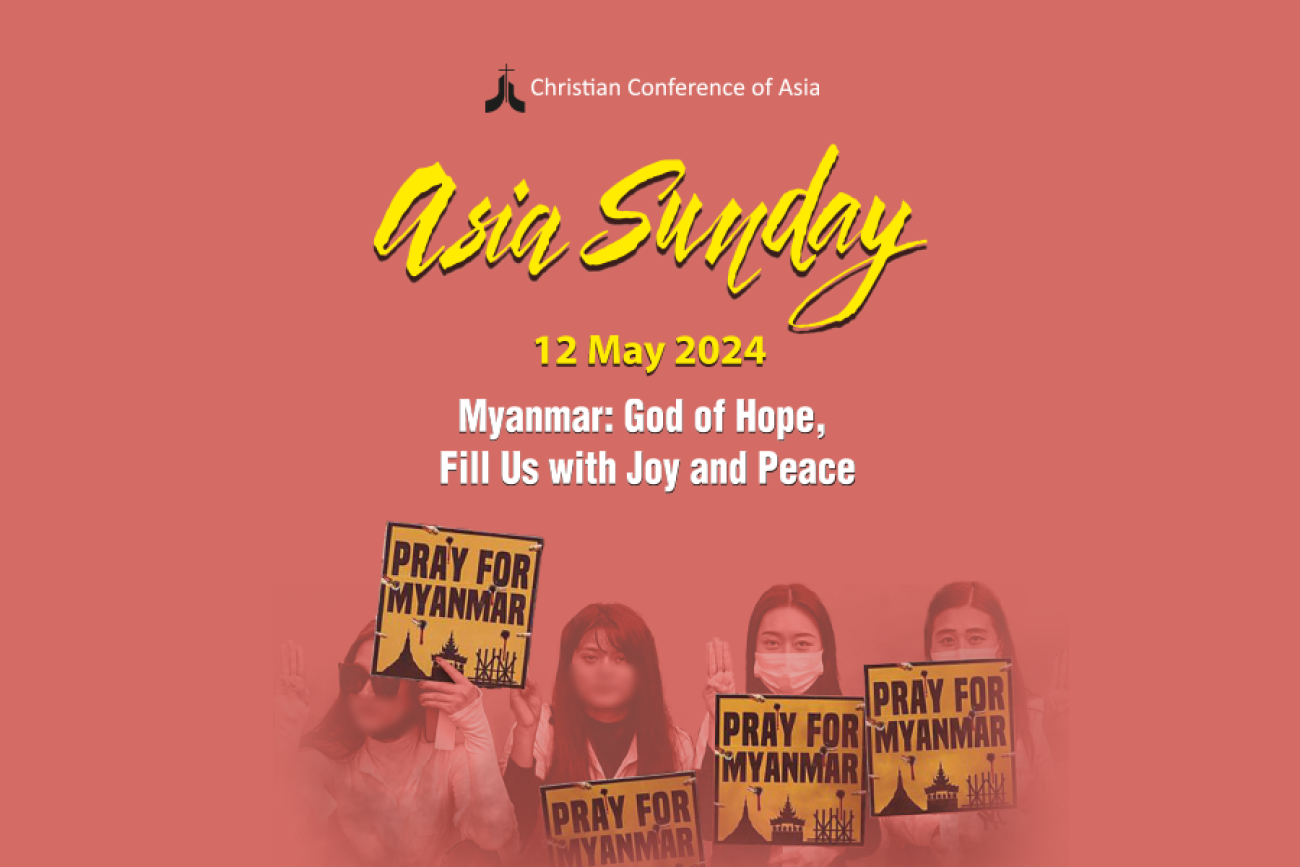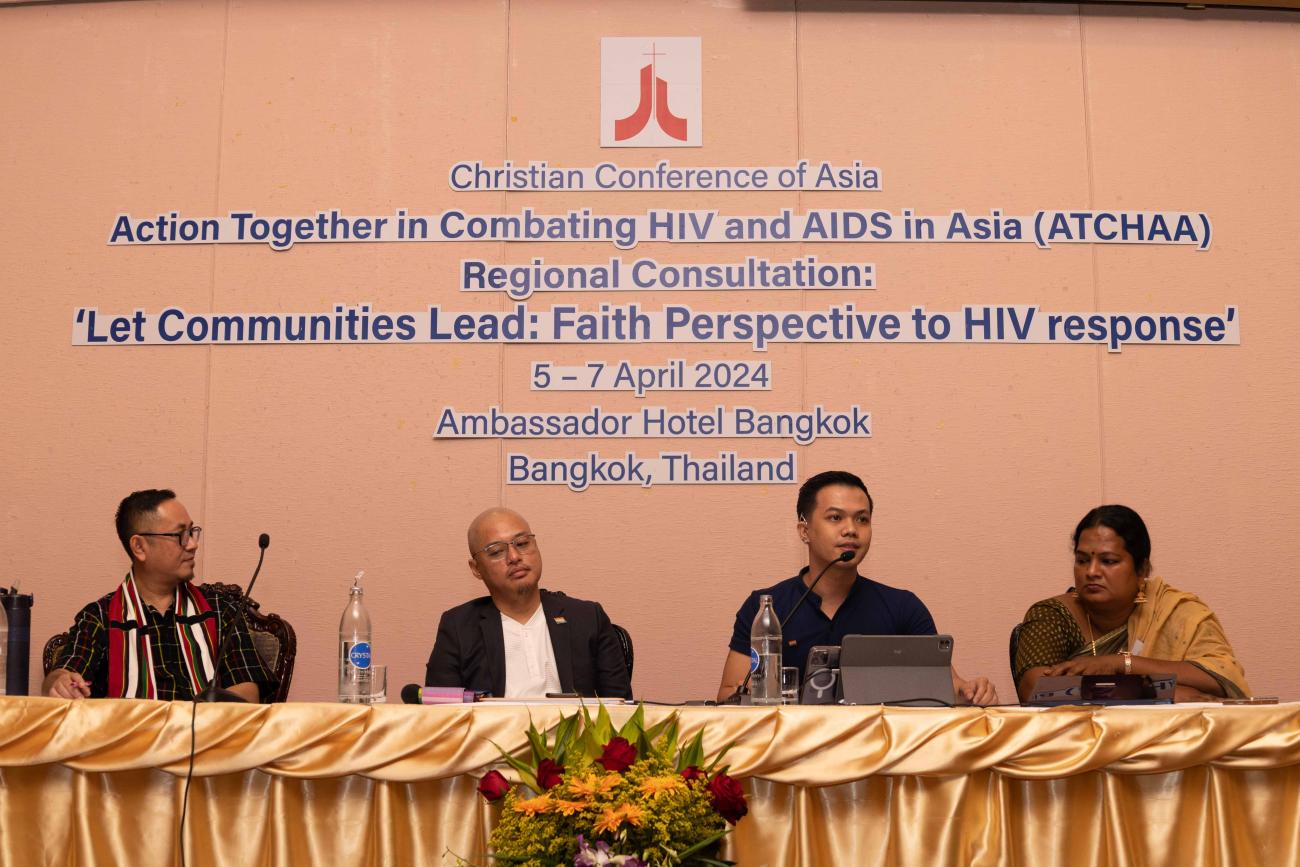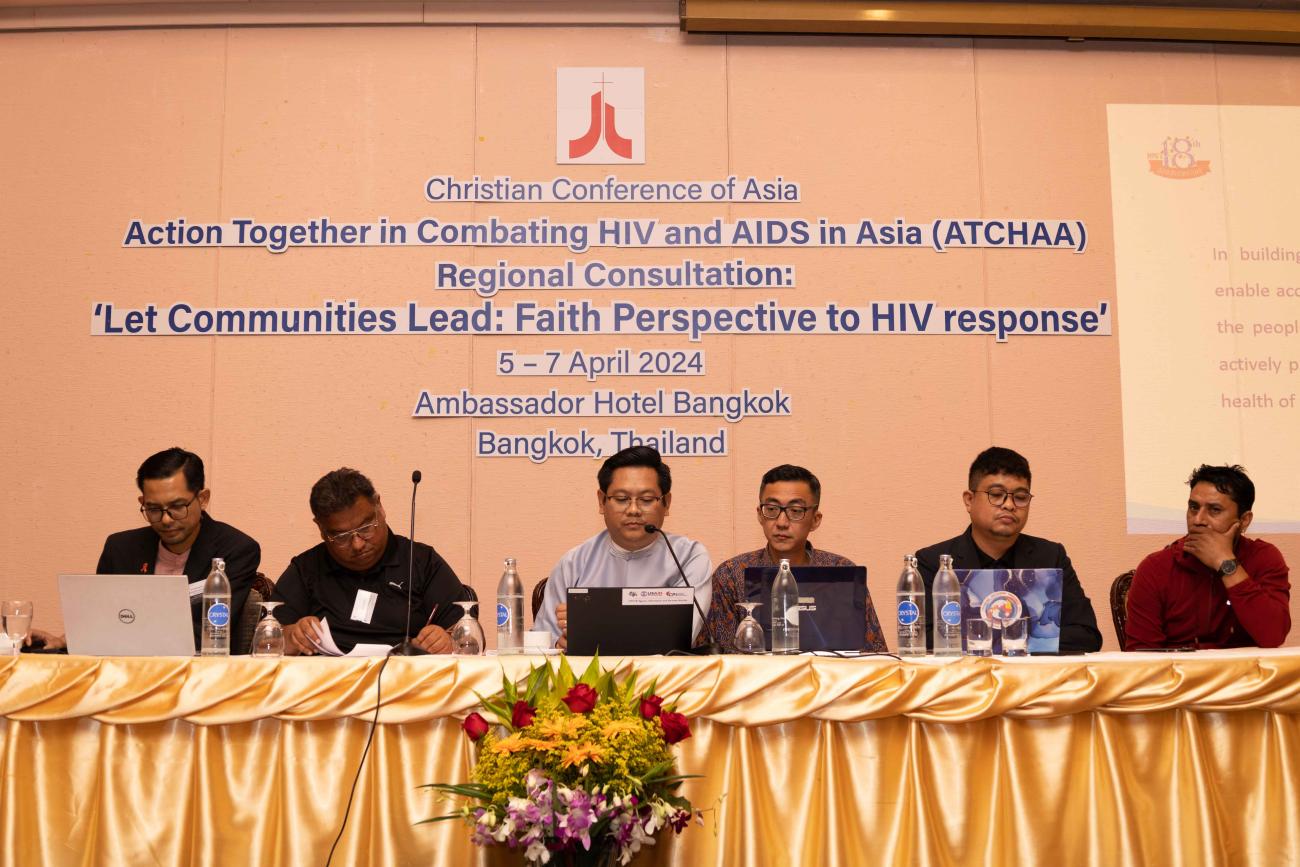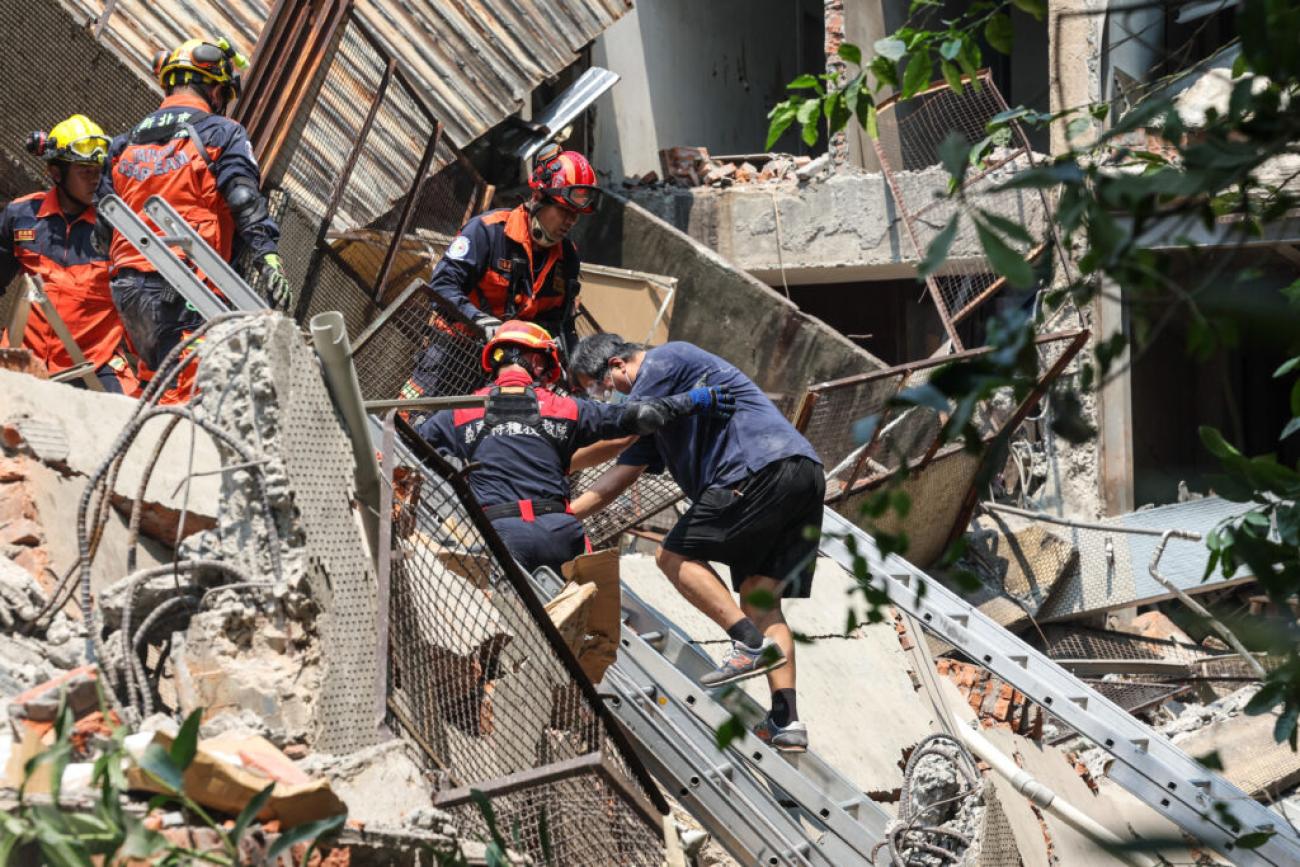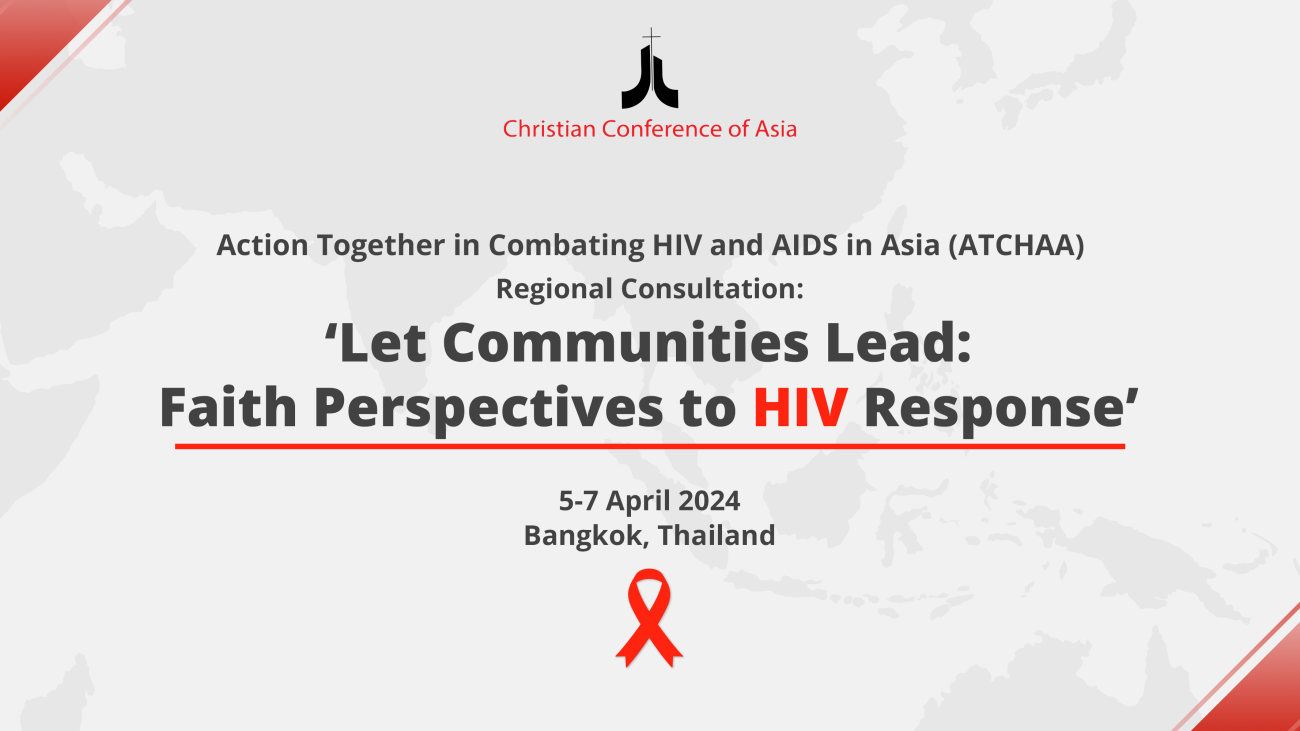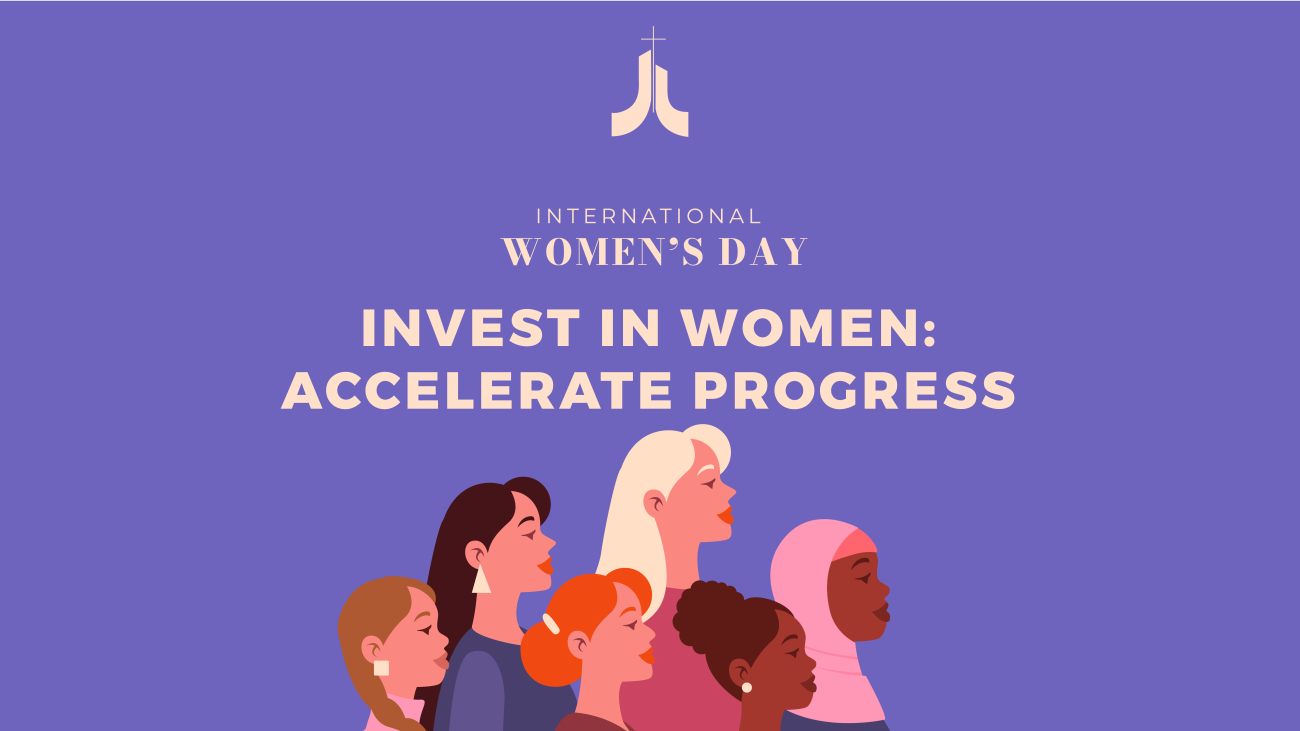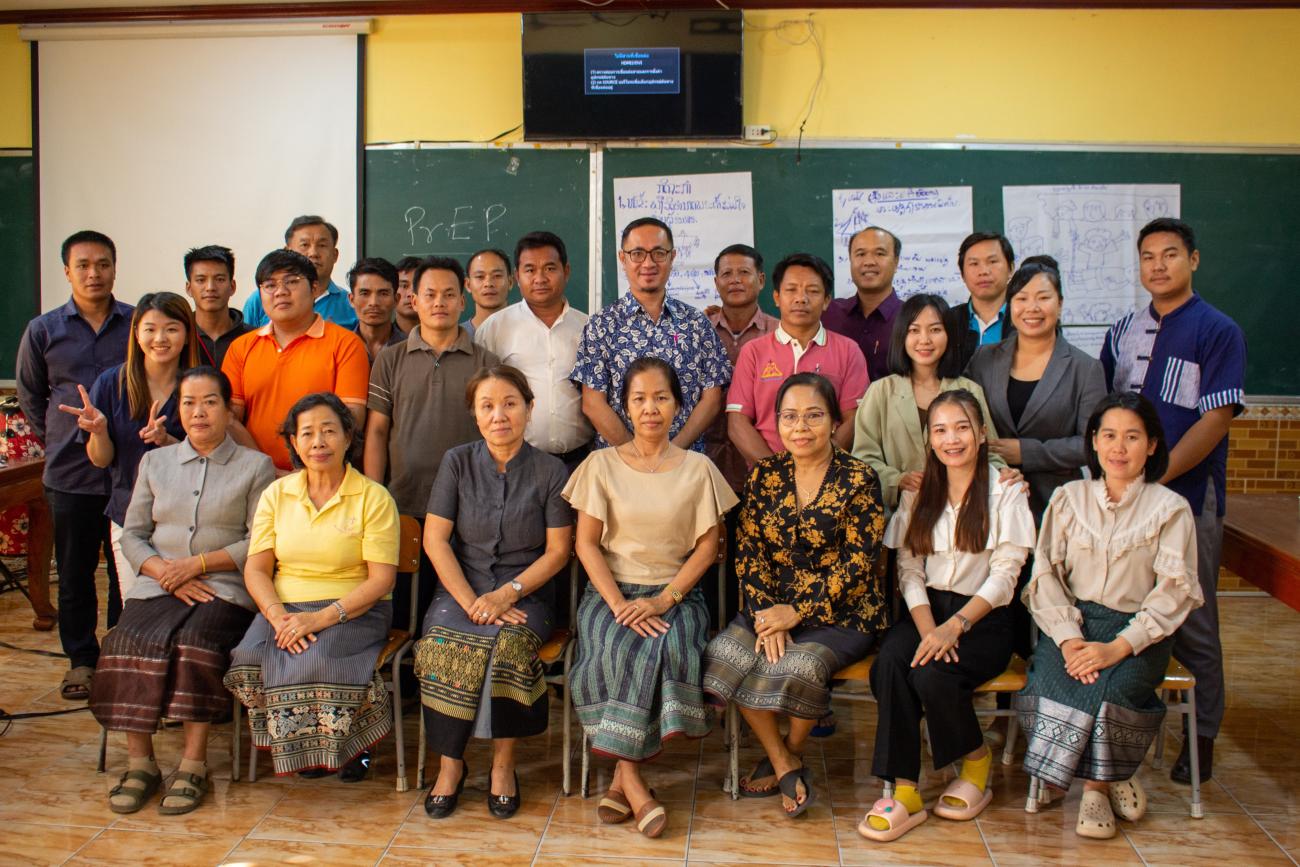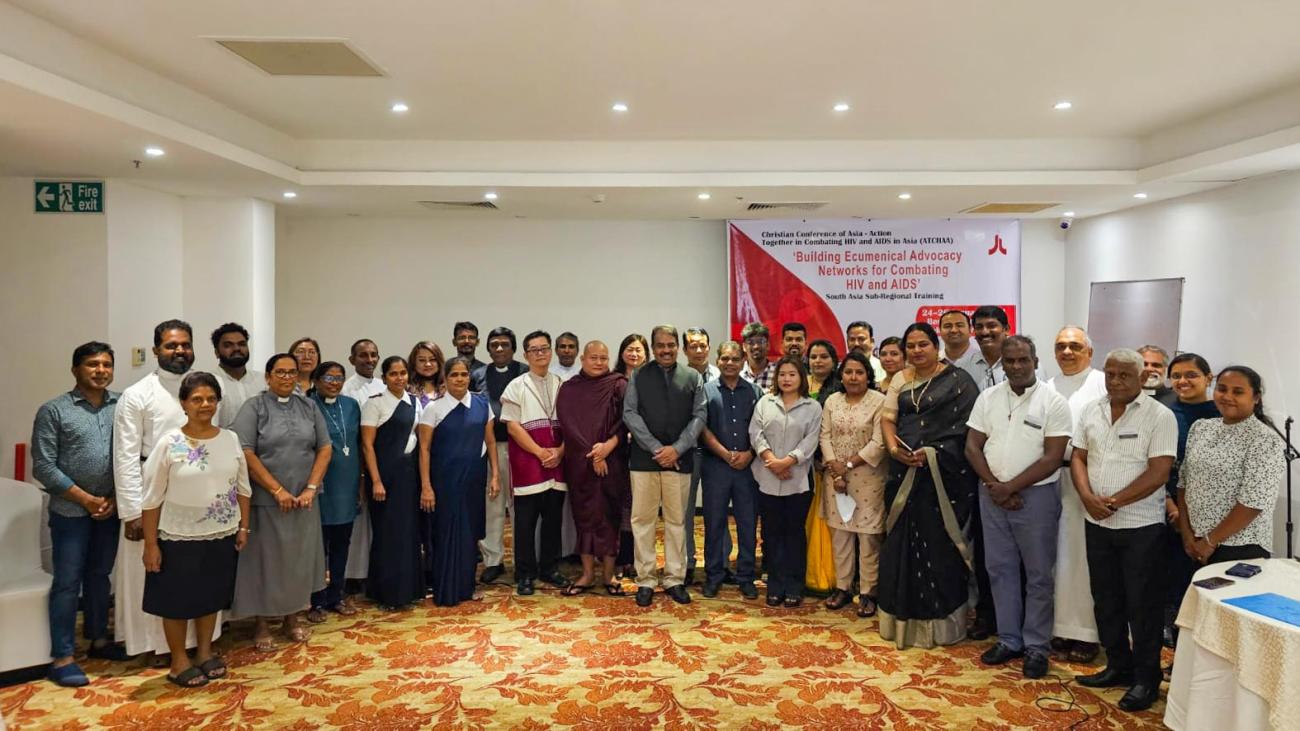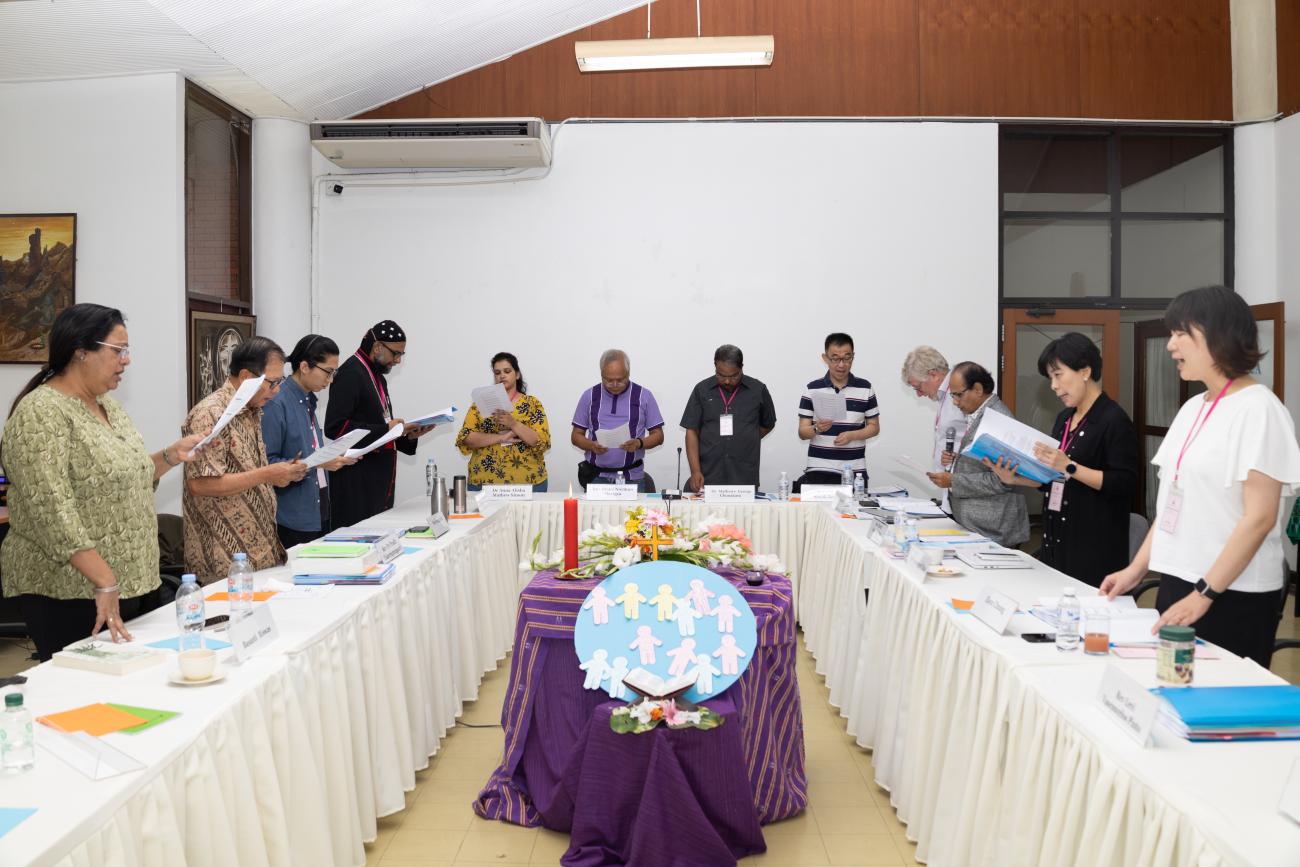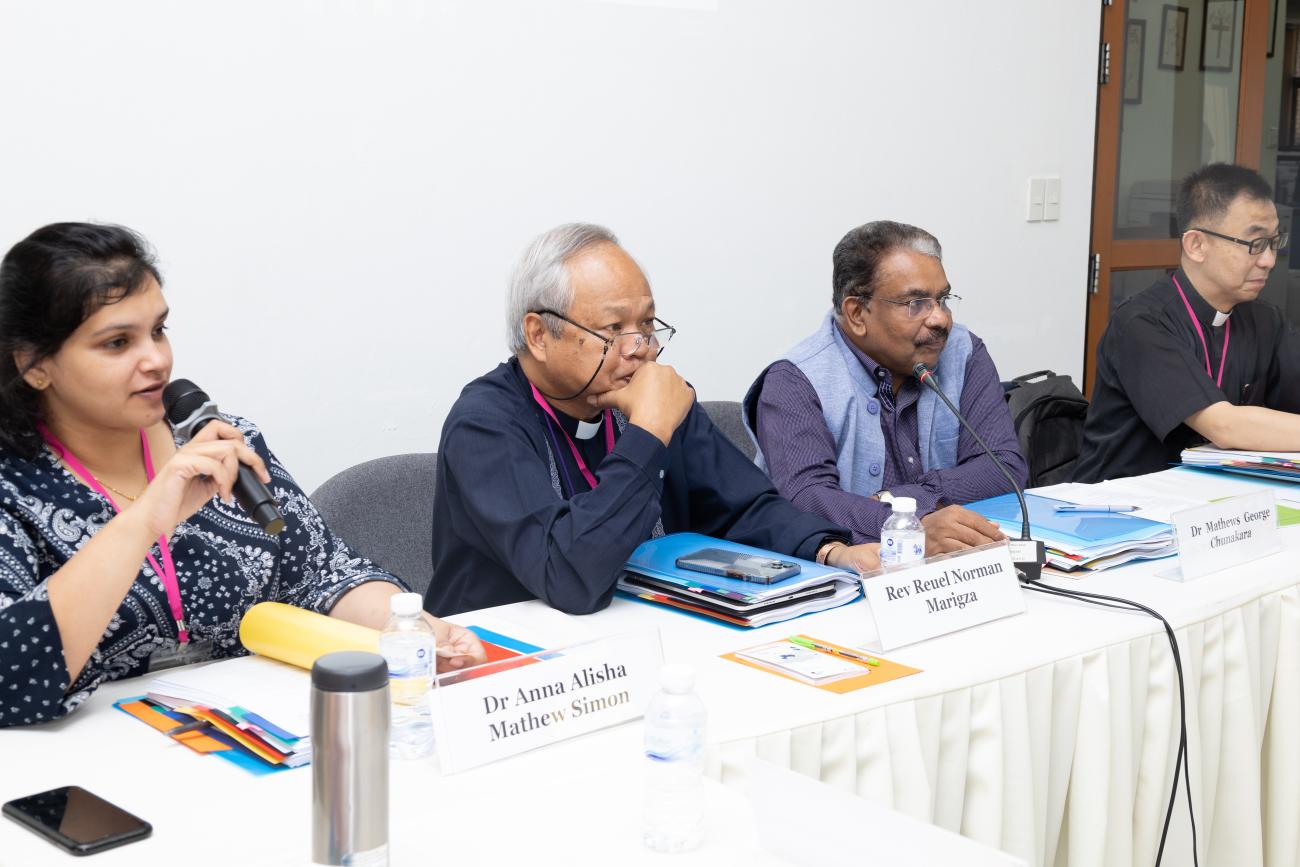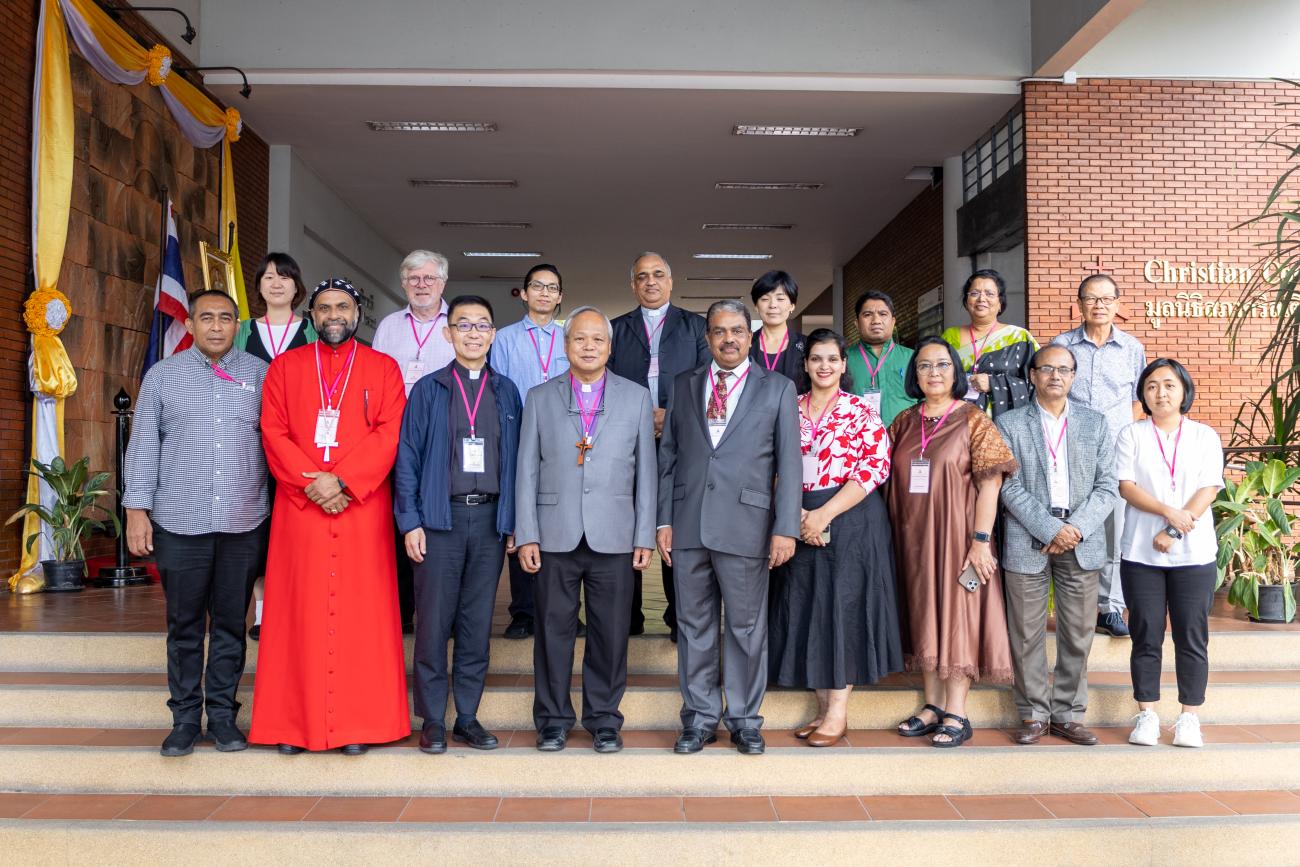Executive Committee adopts CCA’s strategic programme directions
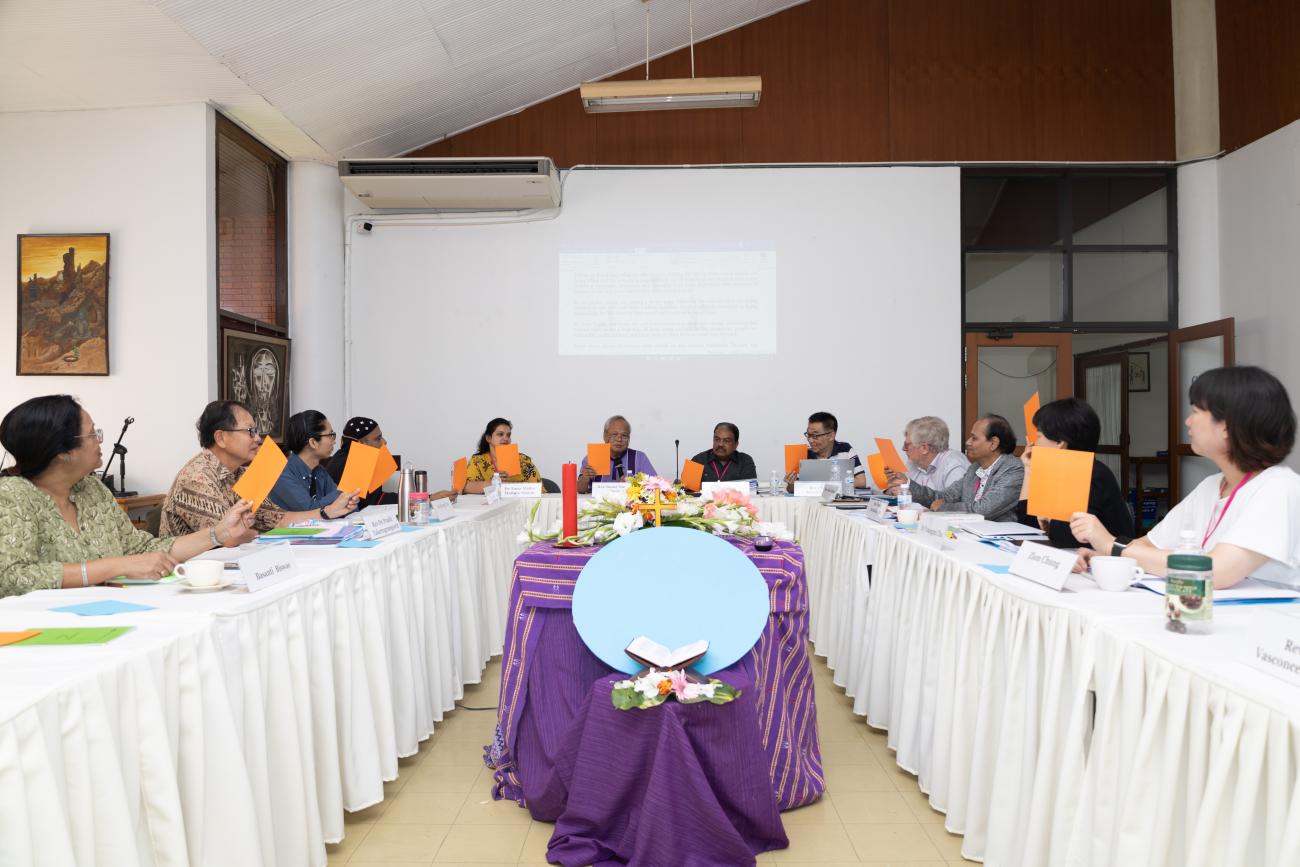
Executive Committee adopting CCA’s strategic programme directions in Excom meeting 2024
Chiang Mai, Thailand: The Executive Committee of the Christian Conference of Asia (CCA) assessed its current programme structure and resolved to maintain the existing programme directions, along with incorporating additional thematic focuses in response to emerging Asian contexts until the 16th CCA General Assembly in 2028.
Under the programme structure which was initiated after the 14th CCA General Assembly and has been in place since 2016, the CCA programmes operate in four areas: Mission in Unity and Contextual Theology (MU), Ecumenical Leadership Formation and Ecumenical Spirituality (EF), Building Peace and Moving Beyond Conflicts (BP), and Prophetic Diakonia and Advocacy (PD). The CCA’s special project, Action Together to Combat HIV and AIDS in Asia (ATCHAA), is also part of this structure, while an additional focus on health and healing will be added as a priority activity.
In his report, the CCA General Secretary Dr Mathews George Chunakara informed the Executive Committee that in the proposed draft strategic programme plans, the existing programme structure provided the CCA with the necessary flexibility and scope to incorporate and tackle a diverse array of issues and themes relevant to Asia’s evolving socio-economic, ecological, geopolitical, ecclesiastical, and ecumenical environments.
The General Secretary recommended that the key areas of programme implementation to be continued might include issues and themes such as care for creation and its theological emphasis; Asia’s religious plurality and freedom of religion; shrinking civil spaces in Asian societies; upholding human rights; ecumenical formation and leadership development; good governance, and integrity leadership in Asian churches; gender justice; ecumenical advocacy initiatives for violence against women; youth empowerment; training of youth ambassadors for peace; migration, statelessness, and human trafficking; artificial intelligence and its ethical implications; health and healing; ecumenical diakonia; and nurturing the acumen of budding theologians through the Congress of Asian Theologians.
The Executive Committee also decided to constitute the Asian Ecumenical Diakonia Network to strengthen the ecumenical diaconal involvement of Asian churches. This decision emerges from the mandates expressed by Asian ecumenical and ecclesial leaders both at the Asian Church and Ecumenical Leaders’ Conference in Jakarta, Indonesia, in May 2023, as well as the 15th CCA General Assembly in Kottayam, India, in September–October 2023.
The Report of the external evaluation of CCA conducted by external evaluators was reviewed and discussed in detail. The external evaluation was initiated by the CCA Executive Committee to assess the viability and effectiveness of the new programmatic structure and the new management mechanisms introduced in the post-Jakarta Assembly period.
The 15th CCA General Assembly had received the external evaluation report and had commended it to the Executive Committee for follow-up actions concerning the recommendations. To this end, the Executive Committee appointed a special four-member task group for careful planning and implementation of the Report’s recommendations.
The new Programme Committee constituted at the Executive Committee meeting will begin its work by reviewing the CCA’s Strategic Programme Plan proposals at its first meeting in April 2024.
The Executive Committee also discussed the proposals by the General Assembly to study problems related to operational constraints due to government policies and visa and banking restrictions which hampered CCA’s smooth functioning in Chiang Mai. A sub-committee was appointed to study the matters related to relocation options of the CCA headquarters.
The Executive Committee meeting took place at the CCA headquarters from 17 to 19 January 2024.
For more photos ( Photo Gallery), please click here: Executive Committee Meeting 2024 Day 2

